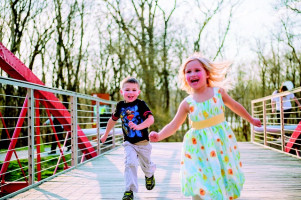
Overcoming cancer is possible today, but many European childhood cancer survivors still suffer from considerable treatment-related side-effects throughout their lives.
Improving their long-term health is the aim of the European Conference PanCareSurFup for Childhood Cancer Survivors ‘Acting Now!’, which will take place on 23-24 May 2016 in Brussels, Belgium.
SIOPE (the European Society for Paediatric Oncology) and the conference co-organisers are delighted to cooperate with Mr Alojz Peterle MEP (SL, EPP) and President of the MEPs Against Cancer (MAC) Group, who will open this important event, held in association with the European Week Against Cancer (25-31 May).
Despite important progress in childhood cancer survival in Europe (80% survival rate at 5 years from diagnosis), of an estimated 300-500,000 childhood cancer survivors in Europe, 2/3 may experience late complications and for 1/4 of them it is a serious or even life-threatening side-effects.
Unlike survivors of adult cancer, childhood cancer survivors have all or most of their life ahead of them; quality-of-life can be affected in areas such as fertility, heart failure, and subsequent cancers and, as each late effect is rare, it is of utmost importance to have very broad studies to learn more about them.
Solutions to tackle these challenges have been identified by the EU-funded project PanCareSurFup (PanCare Childhood and Adolescent Cancer Survivor Care and Follow-Up Studies).
Coordinated by Lund University (Lund, Sweden) and funded by the 7th Framework Programme of the European Commission, this consortium of 16 institutions from 11 European countries carried out research into the late effects of cancer treatments during the past five years.
PanCareSurFup study outcomes are essential to educate both former patients and healthcare professionals through guidelines for follow-up, training and workshops for stakeholders and – most importantly – by empowering survivors to play an active role in maintaining their own health and well-being with specific tools like the ‘Survivorship Passport’.
The importance of this conference in informing survivors and their families is highlighted by a participant who has been cured of Hodgkins’ Disease 15 years ago, Sarah Quigley from Dublin: “Going through the cancer as a teenager is not so bad because there is lots of support. It is the late complications that keep on coming when you are an adult, and there is little or no support”.
Last 4th February (World Cancer Day), SIOPE Board Member Prof Gilles Vassal said “Cancer remains the first cause of death by disease for children in Europe, and the majority of survivors experience serious late effects: it is imperative that policy-makers and all stakeholders cooperate to urgently solve these issues”.
Improving the quality of survivorship is indeed one of the main objectives of the SIOPE Strategic Plan ‘A European Cancer Plan for Children and Adolescents’, a milestone document agreed by the entire childhood cancer community which puts forward concrete solutions to the current paediatric oncology/haematology issues in Europe.
This is why, in line with this Strategic Plan, SIOPE and the conference co-organisers look forward to engage with all participants to this 2-days’ Conference – including policy-makers, healthcare professionals, researchers, childhood cancer survivors and their families – to cooperate and identify ways forward to ensure the right to live a full and meaningful life to all European survivors of childhood and adolescent cancer.
Source: SIOPE
We are an independent charity and are not backed by a large company or society. We raise every penny ourselves to improve the standards of cancer care through education. You can help us continue our work to address inequalities in cancer care by making a donation.
Any donation, however small, contributes directly towards the costs of creating and sharing free oncology education.
Together we can get better outcomes for patients by tackling global inequalities in access to the results of cancer research.
Thank you for your support.